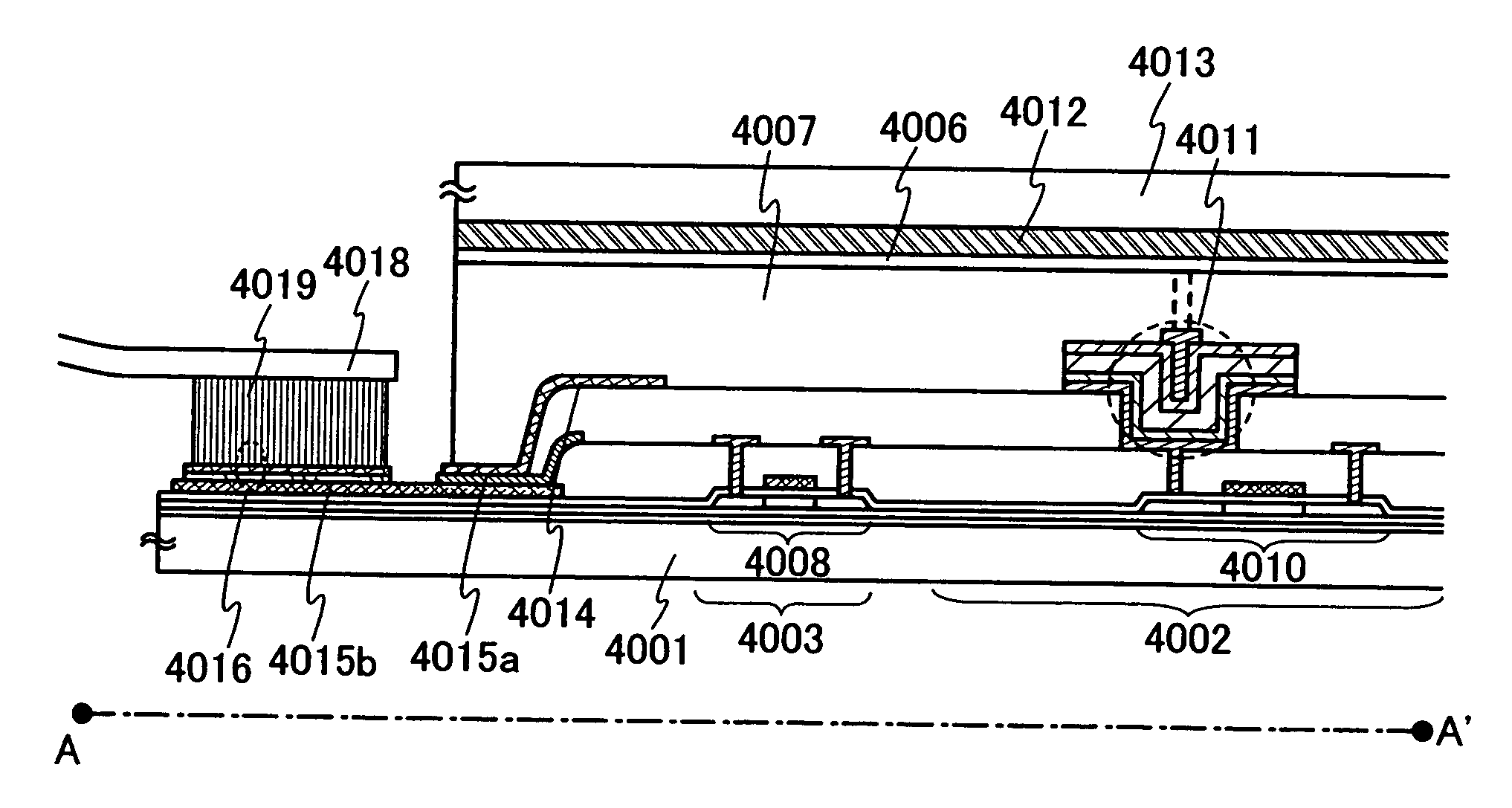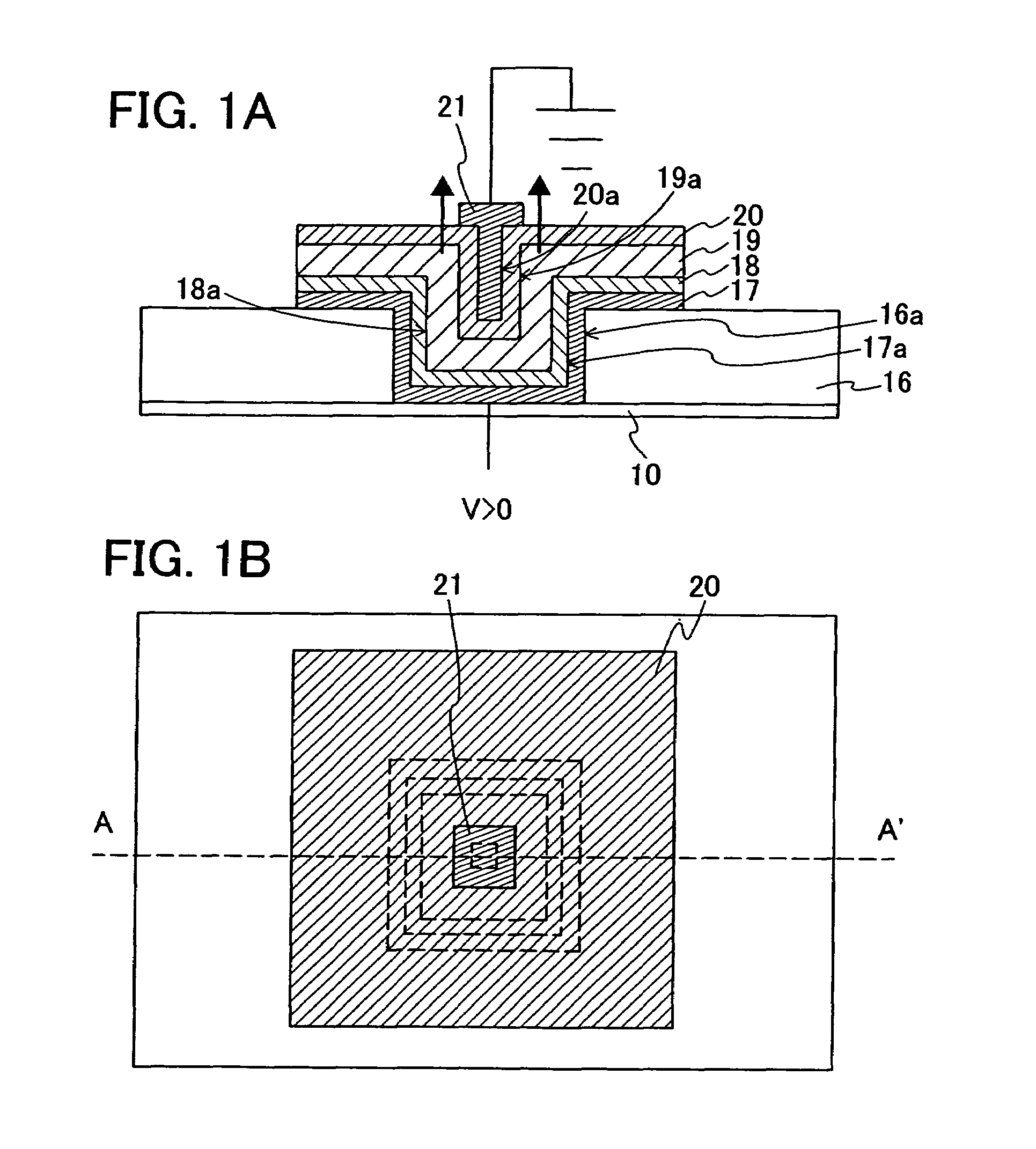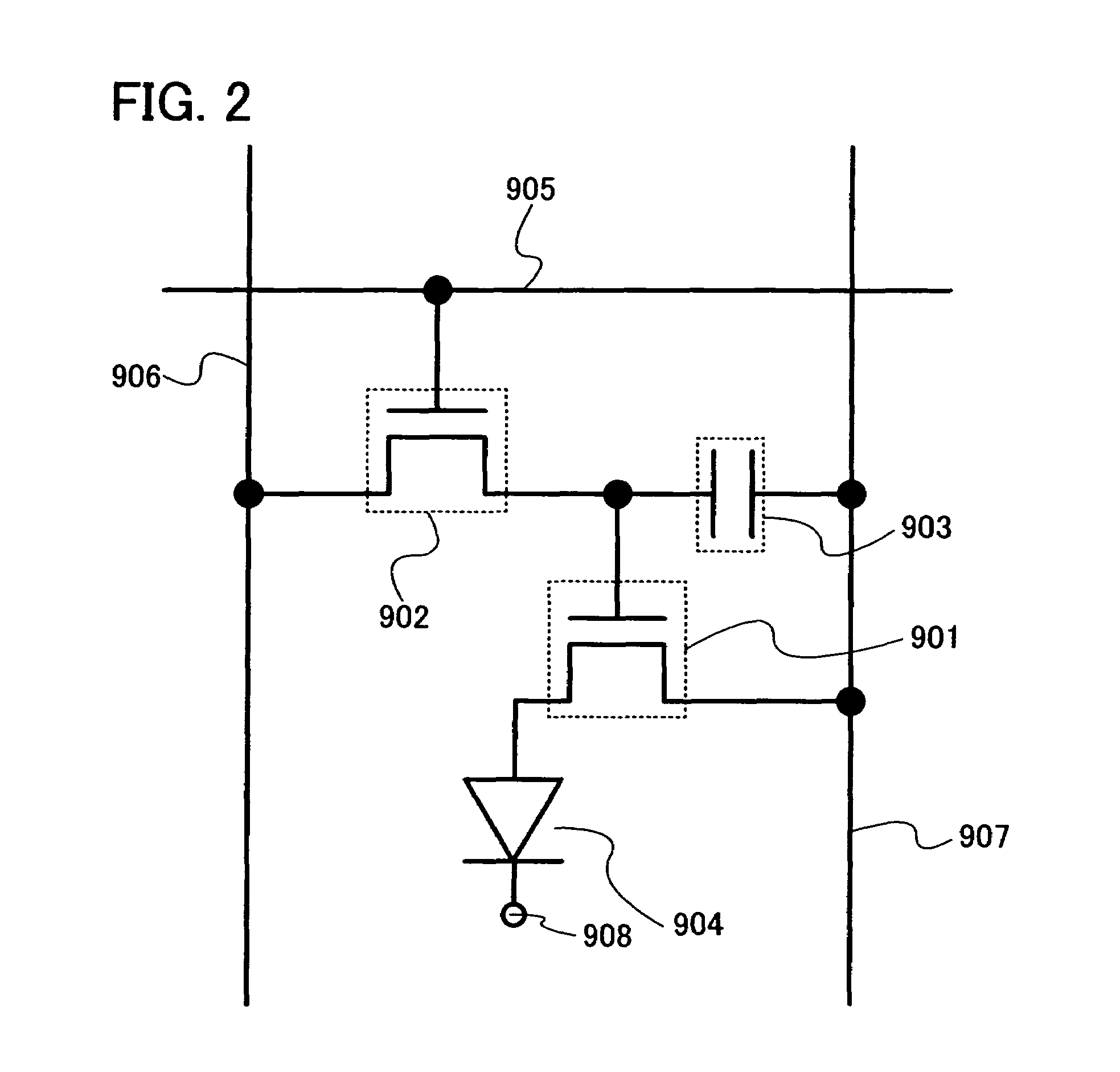Semiconductor device and its manufacturing method, and display device and electronic appliance
a technology of semiconductor devices and manufacturing methods, applied in semiconductor devices, electrical appliances, instruments, etc., can solve the problems of light-emitting elements having lower luminous efficiency, and achieve the effects of improving the luminous efficiency of the display device, increasing the number of light exiting from the top surface per unit area, and prolonging the life of the display devi
- Summary
- Abstract
- Description
- Claims
- Application Information
AI Technical Summary
Benefits of technology
Problems solved by technology
Method used
Image
Examples
embodiment mode 1
[0046]An embodiment mode of the present invention will hereinafter be described with reference to drawings. FIG. 1A is a cross-sectional view for explaining a structure of a light-emitting element in accordance with Embodiment Mode 1 of the present invention. FIG. 1B is a plan view of this light-emitting element. It is to be noted that FIG. 1A shows a cross section along a line A-A′ of FIG. 1B. In this light-emitting element, an insulating film 16 is formed over a substrate 10. The substrate 10 is, for example, a glass substrate. The insulating film 16 is, for example, a silicon oxide film with a thickness of, for example, 0.5 to 1.5 μm. An opening portion 16a is formed in the insulating film 16. A bottom surface of the opening portion 16a is, for example, a square with a length of 2.5 μm on a side.
[0047]A lower electrode 17 is formed over the insulating film 16 around the opening portion 16a and over a bottom surface and a side surface of the opening portion 16a. The lower electrod...
embodiment mode 2
[0066]FIG. 2 is a circuit diagram for explaining a structure of a driving circuit of a light-emitting element in accordance with Embodiment Mode 2 of the present invention. In this embodiment mode, a light-emitting element 904 has a similar structure to that of the light-emitting element described in Embodiment Mode 1, and a counter electrode 908 corresponds to the upper electrode 21 of FIGS. 1A and 1B. An electrode corresponding to the lower electrode 17 is electrically connected to a power source line 907 with a driving TFT (thin film transistor) 901 interposed therebetween. A gate electrode of the driving TFT 901 is electrically connected to a signal line 906 with a switching TFT 902 interposed therebetween. A gate electrode of the switching TFT 902 is electrically connected to a scan line 905. It is to be noted that the gate electrode of the driving TFT 901 is also connected to the power source line 907 with a capacitor element 903 interposed therebetween.
[0067]In such a circuit...
embodiment mode 3
[0069]FIG. 3A is a cross-sectional view and FIG. 3B is a plan view, both explaining a structure of a light-emitting element in accordance with Embodiment Mode 3. It is to be noted that FIG. 3A shows a cross section along a line A-A′ of FIG. 3B. The light-emitting element shown in this embodiment mode has the same structure as the light-emitting element shown in FIGS. 1A and 1B except that a portion protruding upward from the surface of the insulating film 16 is removed. Therefore, the content described in Embodiment Mode 1 can also be applied to this embodiment mode except that emitted light exits directly from an end face of the light-emitting layer 19. A structure similar to that of Embodiment Mode 1 is denoted by the same reference numeral and the description thereof is omitted hereinafter.
[0070]A manufacturing method of the light-emitting element of this embodiment mode is as follows. First, the insulating film 16 and the opening portion 16a are formed over the substrate 10. Mor...
PUM
 Login to View More
Login to View More Abstract
Description
Claims
Application Information
 Login to View More
Login to View More - R&D
- Intellectual Property
- Life Sciences
- Materials
- Tech Scout
- Unparalleled Data Quality
- Higher Quality Content
- 60% Fewer Hallucinations
Browse by: Latest US Patents, China's latest patents, Technical Efficacy Thesaurus, Application Domain, Technology Topic, Popular Technical Reports.
© 2025 PatSnap. All rights reserved.Legal|Privacy policy|Modern Slavery Act Transparency Statement|Sitemap|About US| Contact US: help@patsnap.com



